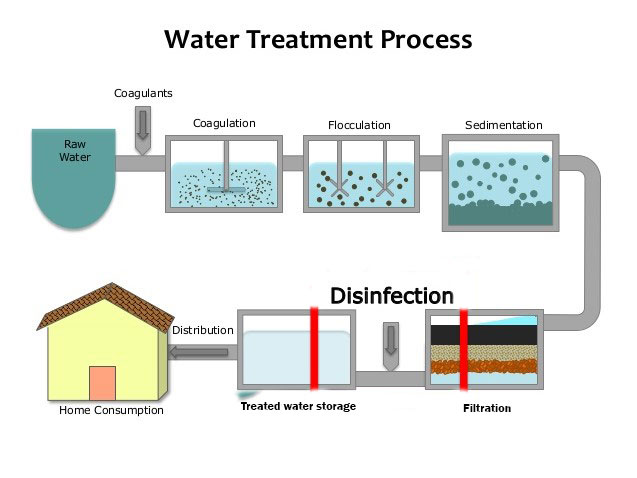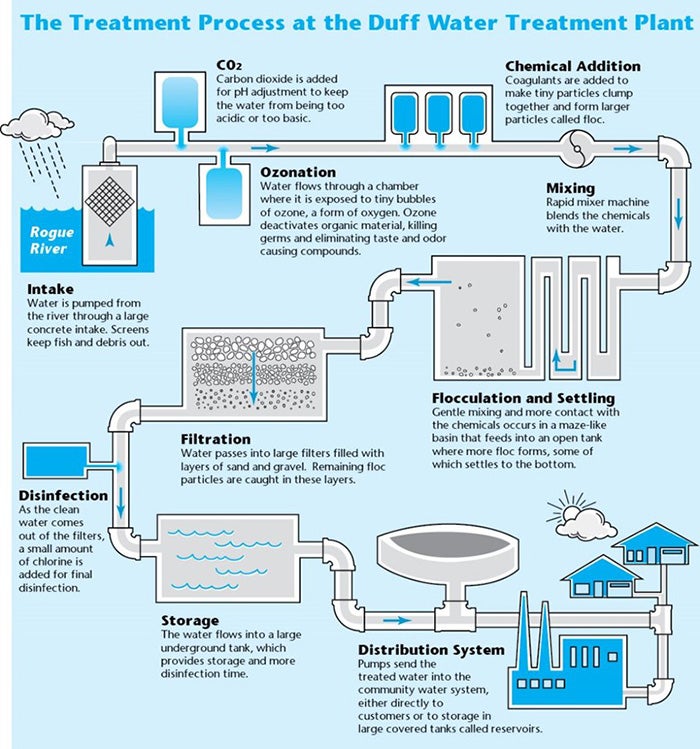Recognizing the Advantages of Cutting-edge Water Technology Startups in Today's Market
Ingenious water Technology start-ups are increasingly identified for their considerable contributions to dealing with water deficiency. These business establish advanced services that boost water high quality and monitoring. By incorporating Technology with sustainable techniques, they not just boost source access but additionally advertise financial development. The collaboration between federal governments, areas, and start-ups is vital in this process. Yet, the future of water Technology holds a lot more potential. What growths could redefine our relationship with this important resource?
The Duty of Water Technology Startups in Addressing Water Deficiency
As global water scarcity escalates as a result of variables like environment adjustment, population development, and air pollution, water Technology startups arise as necessary players in establishing cutting-edge remedies. These startups concentrate on producing effective water management systems, advanced desalination strategies, and smart watering innovations developed to make the most of water use. By harnessing sophisticated innovations such as synthetic knowledge and IoT, they aim to monitor water circulation and consumption, enabling even more sustainable techniques.
Additionally, these startups contribute to boosting water accessibility in underserved regions, giving cost effective options tailored to neighborhood demands. Their nimble nature enables them to swiftly adjust to transforming governing structures and ecological conditions, ensuring they continue to be at the forefront of technology. Collaborations with governmental bodies and established corporations better enhance their effect, facilitating the scale-up of successful initiatives. Eventually, water Technology startups play an essential function in mitigating the effects of water scarcity and advertising effective water stewardship globally.
Ingenious Solutions for Water Quality Renovation
Water Technology startups are significantly addressing the pressing obstacle of water quality improvement together with water scarcity. These ingenious companies create sophisticated filtering systems, bioremediation methods, and chemical treatments created to eliminate impurities from water resources properly. As an example, some startups make use of nanotechnology to develop membranes that uniquely strain hazardous compounds while maintaining important minerals. Others concentrate on lasting techniques, using natural processes and materials to bring back water top quality.
Moreover, real-time tracking remedies allow users to find contaminants and assess water top quality quickly. By integrating smart sensors and IoT technology, these startups offer valuable data that encourages industries and areas to make informed decisions regarding their water usage. The emphasis on innovation not just enhances public wellness but additionally supports governing conformity and ecological sustainability. As a result, these remedies play an important duty in ensuring access to safe and clean water for diverse populations.
Enhancing Water Management With Information Analytics
Taking advantage of data analytics has actually changed water management practices, allowing extra efficient resource allotment and usage. Ingenious water Technology startups utilize progressed algorithms and real-time information collection to analyze and monitor water supply. This technique enables for specific evaluations of water high quality, intake patterns, and framework performance, causing notified decision-making.
By integrating predictive analytics, these startups can anticipate possible concerns such as leaks or contamination, promoting positive maintenance and minimizing functional expenses. Furthermore, data-driven understandings equip energies to enhance their circulation networks, making certain that water gets to consumers without waste.
The application of information analytics also boosts regulative conformity by providing exact reporting and monitoring capabilities. As water shortage comes to be a boosting concern worldwide, the role of data analytics in boosting water administration is extremely important. Overall, these advancements foster resilience in water systems while advertising sustainability and effectiveness, ultimately benefiting areas and the setting.
Sustainable Practices and Environmental Influence
Ingenious water Technology start-ups are increasingly concentrating on sustainable techniques to attend to pushing environmental obstacles. By applying water conservation methods and contamination reduction techniques, these companies aim to minimize their ecological impact. This dedication not only enhances source performance but also adds to the total health and wellness of water ecological communities.
Water Preservation Techniques
Just how can neighborhoods effectively lower their water usage while advertising sustainability? Ingenious water Technology start-ups use a variety of solutions that focus on efficient water usage. Methods such as rain harvesting systems allow businesses and households to catch and use precipitation, especially lowering reliance on local water sources. Smart irrigation systems geared up with sensors reduce water waste by supplying exact watering timetables based upon ecological conditions. In addition, the implementation of graywater recycling systems enables the reuse of water from sinks and showers for watering functions. Public recognition projects additionally inform areas on liable water usage, promoting a culture of preservation. By incorporating these strategies, communities can achieve significant reductions in water consumption, contributing favorably to ecological sustainability.
Air Pollution Decrease Methods
As neighborhoods face journalism problem of water pollution, the fostering of efficient decrease methods becomes important for safeguarding ecological wellness. Ingenious water Technology start-ups are at the center of establishing sustainable techniques that significantly mitigate pollution. These startups employ innovative filtering systems, bioremediation techniques, and smart tracking solutions to improve water quality. By integrating eco-friendly products and advertising closed-loop systems, they reduce waste and reduce harmful discharges right into rivers. Additionally, public awareness campaigns pioneered by these companies enlighten communities on air pollution avoidance and lasting techniques. Generally, the collaborative efforts of ingenious startups contribute to a cleaner environment, demonstrating that Technology and sustainability can exist together to address the urgent challenges of water contamination and advertise lasting ecological well-being.
Economic Development Driven by Water Innovation
Economic development increasingly pivots on advancements in water technology, with significant ramifications for work creation. Startups in this market not just develop sustainable source monitoring Water Technology Startups services however additionally lead the means for new job opportunity. As these business grow, they add to a much more durable economy while dealing with important water obstacles.
Work Production Opportunities
The difficulties of water shortage and air pollution impend huge, cutting-edge water Technology start-ups are arising as key players in promoting work development and driving economic development. By creating sophisticated services for water management and treatment, these start-ups add to the creation of diverse employment possibilities across various sectors. Duties in design, development and research, and sales are broadening, as the demand for proficient professionals expands to sustain new modern technologies. Moreover, neighborhood economies profit as startups often resource materials and solutions from close-by businesses, producing a causal sequence of work development. As these companies scale, they draw in financial investments, additionally strengthening the workforce and boosting regional financial activities. Eventually, the surge of water Technology start-ups indicates a promising opportunity for sustainable task growth.

Sustainable Source Monitoring
Innovative water innovations not just resolve pressing ecological problems but also serve as drivers for lasting resource administration and financial development. By optimizing water use and boosting performance, these modern technologies allow sectors to lower waste and reduced operational expenses. Start-ups in this field create solutions for water purification, recycling, and conservation, which are crucial in combating water deficiency and ensuring long-term availability. Additionally, the adoption of such developments promotes a circular economic situation, where resources are recycled and repurposed, boosting general performance. As services purchase sustainable methods, they add to work production and regional development. Consequently, the intersection of water technology and lasting resource management cultivates economic strength while resolving environmental obstacles encountered by areas worldwide.
Collaboration Between Startups, Governments, and Areas
As water shortage comes to be an increasingly pushing worldwide issue, partnership in between federal governments, communities, and start-ups emerges as a vital strategy for establishing effective remedies. Startups bring ingenious technologies and fresh point of views, while federal governments can provide regulative frameworks and moneying assistance. Communities play an important duty in identifying regional obstacles and implementing services on the ground.
Effective collaborations often involve shared resources and understanding exchange, making it possible for stakeholders to leverage each other's staminas. As an example, municipalities can collaborate with startups to pilot water-saving technologies, while start-ups gain useful comments and understandings from community members. These collective initiatives can boost public understanding and promote a culture of sustainability.
Lining up the goals of all celebrations entailed boosts the capacity for long-lasting success (Water Technology Startups). By collaborating, federal governments, startups, and areas can produce a more durable water monitoring system that attends to immediate needs while additionally preparing for future difficulties. This synergy is important in promoting innovation and ensuring lasting water access for all
Future Fads in Water Technology and Their Effects
Arising trends in water Technology are positioned to reshape the method societies take care of and save this essential resource. Progressively, technologies such as clever sensors, IoT-enabled tools, and AI-driven analytics are improving water top quality tracking and anticipating maintenance. These developments enable for timely treatments, reducing waste and making certain sustainable use.
Decentralized water therapy solutions are acquiring grip, enabling areas to handle their water supply more separately and effectively. This change fosters durability versus environment variability and population growth.
Furthermore, the integration of renewable energy resources in water Technology decreases the carbon footprint of water therapy procedures.
As these fads remain to evolve, they carry considerable ramifications for regulative structures, investment methods, and neighborhood engagement. Stakeholders have to adjust to these adjustments to harness the full capacity of ingenious water innovations, eventually bring about enhanced water security and lasting source administration for future generations.

Frequently Asked Concerns
How Do Water Technology Startups Secure Financing for Their Innovations?
Water Technology start-ups safe and secure financing through numerous channels, including equity capital, government gives, angel capitalists, and crowdfunding systems. They commonly present compelling service models and innovative options to draw in financial backing for their tasks.
What Are the Typical Challenges Faced by Water Technology Startups?
Water technology startups frequently deal with challenges such as securing financing, maneuvering governing requirements, scaling technologies, competitors from well-known companies, and market approval (Water Technology Startups). These obstacles can prevent their development and advancement potential in the market
Just how Do These Start-ups Determine Their Effect On Regional Communities?
Water technology startups commonly determine their influence on local communities with metrics such as improved water top quality, increased accessibility, expense savings, neighborhood interaction feedback, and ecological sustainability indicators, guaranteeing their options properly resolve local water challenges.
What Duty Do Customers Play in Sustaining Water Technology Innovations?
Customers play a crucial role by proactively adopting water Technology advancements, providing responses, and supporting for sustainable techniques. Their choices influence market need, driving start-ups to introduce more and address regional water difficulties properly.
Exist Details Laws Affecting Water Technology Startups?
Yes, particular policies considerably effect water Technology start-ups - Water Technology Startups. These guidelines encompass environmental criteria, safety procedures, and funding opportunities, which can either help with technology or position obstacles, ultimately shaping the market's landscape and affordable characteristics
Cutting-edge water Technology start-ups are increasingly recognized for their significant payments to resolving water shortage. These startups focus on developing reliable water administration systems, progressed desalination methods, and wise irrigation technologies developed to maximize water usage. Water Technology startups are significantly resolving the pushing obstacle of water top quality enhancement along with water scarcity. Ingenious water Technology start-ups offer an array of options that focus on effective water use. The difficulties of water scarcity and air pollution loom large, innovative water Technology start-ups are arising as essential gamers in cultivating task production and driving economic development.